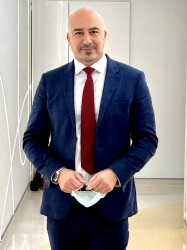BibTex format
@article{Smith:2023:10.1371/journal.pone.0289067,
author = {Smith, P and Alaa, A and Roboli, Sasco E and Bagkeris, E and El-Osta, A},
doi = {10.1371/journal.pone.0289067},
journal = {PLoS One},
pages = {1--22},
title = {How has COVID-19 changed health and social care professionals' attitudes to self-care? A mixed methods research study},
url = {http://dx.doi.org/10.1371/journal.pone.0289067},
volume = {18},
year = {2023}
}

